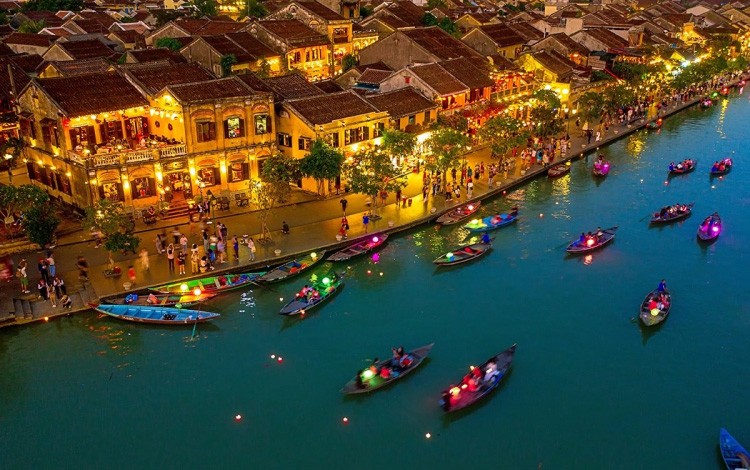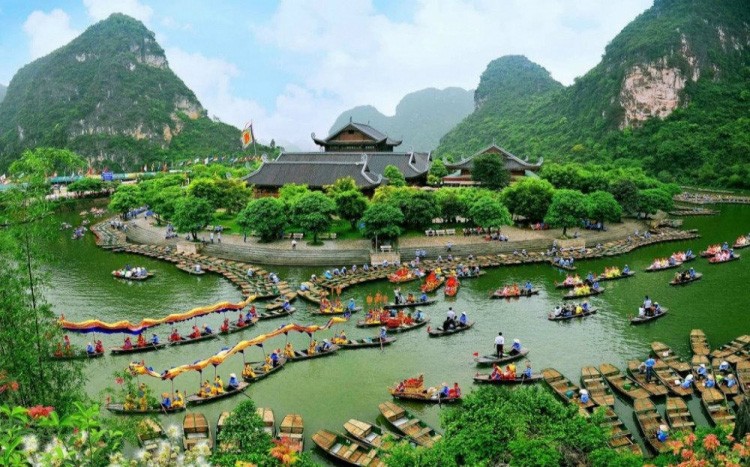
Preserving and improving 'gold mine' of Vietnamese cultural heritages
Latest
 |
| Cultural heritage is an invaluable asset that binds the national communities, the core of national identity, and the basis for creating new values and cultural exchange. (Source: TITC) |
Invaluable assets of Vietnam
According to the results of local relic inventories, there are currently about 40,000 historical-cultural relics and scenic spots distributed throughout the country, that have been inventoried and listed according to the provisions of the Cultural Heritage Law.
Among them, there are 8 world cultural and natural heritage sites recognized by UNESCO, 128 special national relics, 3,614 national relics, and more than 10,000 provincial relics.
Musems accross the country currently store and display nearly 3 million documents and artifacts, of which there are 265 artifacts and groups of artifacts are recognized as national treasures.
Along with the treasure of tangible cultural heritage, our country also has a treasure of intangible cultural heritage that is diverse in type, rich in reserves, and unique in history, culture and science.
To date, there have been about 70,000 intangible cultural heritages inventoried across the country, of which 498 ones have been included in the National Intangible Cultural Heritage List, 15 Intangible cultural heritage are recognized by UNESCO in the Representative Lists of Intangible Cultural Heritage of Humanity and Intangible Cultural Heritage in Need of Urgent Protection.
UNESCO also recognized 9 documentary heritages in the Memory of the World program.
Experts say that cultural heritage is an invaluable asset that binds the national community. It is also the core of national identity and the basis for creating new values and cultural exchange. Relics, especially historical relics associated with the resistance revolution, also contribute significantly to educating the young generation about the tradition of fighting to protect the Fatherland, the patriotic spirit of our nation and about national cultural identity, community cohesion and promoting the good traditions of our people.
Besides the spiritual foundation, endogenous factors that contribute to cultural development and identity shaping, Vietnam's cultural heritage system is also contributing a significant part to the economic development of the local having heritage in particular and the country's economy in general.
Many relics and heritage sites have become complete cultural and tourism products with unique characteristics, creating attractive tourist spots and routes, attracting a large number of both domestic and international tourists.
Key mission
According to Cultural heritage Laws, Vietnam’s cultural heritage is the valuable asset of Vietnamese ethnic communities and also a part of global cultural heritage, playing a big role in national construction and protection of our people.
Assoc. Prof. Dr. Dang Van Bai, Vice Chairman of the National Cultural Heritage Council, said that preserving cultural heritage is a key task of the cultural development strategy, firstly because it contains core cultural values of the nation-state.
Cultural heritage is able to contribute greatly to the need of building a healthy and cultural social environment (social stability) which is the most important factor for sustainable development. This can also be considered "soft power" - Vietnam's strength.
 |
| Vietnam cultural heritage is the valuable assets of Vietnamese ethnic communities. (Photo: Resources and Environment Newspaper) |
Assoc. Prof. Dr. Dang Van Bai believes that preserving cultural heritage is to carry out the educational function of culture, meeting the requirements of building and cultivating ideology, ethics, humane lifestyle and training human resources that are qualified for promoting industrialization, modernization of the country and international integration.
The Vice Chairman of the National Cultural Heritage Council stated: “The preservation of national cultural heritages is meaningful in building a spiritual foundation and even from a material and economic perspective. Because cultural heritage is the unique resources that can be sold many times to many people at high value. That contribution to the national culture and economy is also of great importance.
Therefore, when we consider cultural heritage as the national value assets and a part of global cultural heritage, there needs to be a truly innovative response to cultural heritage.
We need to inventory, survey, and evaluate the cultural heritage system, increase the application of technology in heritage conservation, and promote heritage education for all generations, especially the young generation.
I hope that the issue of dealing with cultural heritage and the contribution of cultural heritage to the economy will be properly identified, thereby improving the policy and legal system to preserve cultural heritage even better in the future".
Mr. Pham Ha, CEO of LUX Group asserted that Vietnam had a “gold mine”, that is the resource of various cultural heritage.
“In order to gain the target of receiving 35 million international arrivals, serving 160 million domestic tourists and reaching the growth rate of domestic tourists obtained from 4 – 5% by 2030, I think we need to reposition the national brand of Vietnam.
Ministry of Culture, Sport and Tourism has issued the marketing strategy for Vietnam’s tourism by 2030. In my opinion, we should position Vietnam’s tourism as the “Top Destination of Asian heritage” or “Touching to Vietnam’s heritage”. When we cherish heritage, we will have methods to protect and behave appropriately and creatively, enhancing the heritage," he said.

















